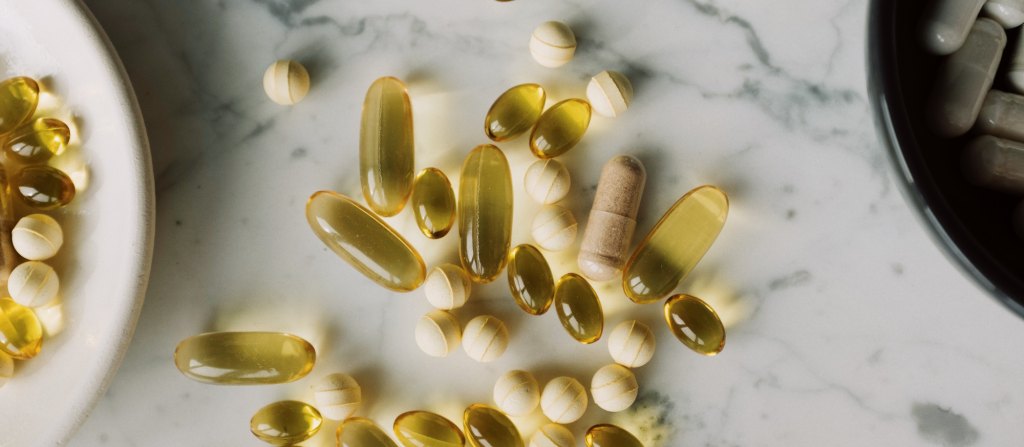
There is a general fear surrounding sun exposure and its effects on our health. For years we have heard health agencies warn us about how dangerous the sun can be for our skin and as a result, the majority of us have taken extra precautions to protect ourselves. The truth is, the avoidance of sun expose has costly repercussions for many aspects of our health. While we have focused on the harmful effects of sun exposure, we didn’t consider the effects of the lack of sunlight on the human body.
A review published in July of 2020 by the Internal Journal of Environmental Research and Public Health voiced concerns about insufficient sun exposure:
“This article aims to alert the medical community and public health authorities to accumulating evidence on health benefits from sun exposure, which suggests that insufficient sun exposure is a significant public health problem. Studies in the past decade indicate that insufficient sun exposure may be responsible for 340,000 deaths in the United States and 480,000 deaths in Europe per year, and an increased incidence of breast cancer, colorectal cancer, hypertension, cardiovascular disease, metabolic syndrome, multiple sclerosis, Alzheimer’s disease, autism, asthma, type 1 diabetes and myopia.”
The benefits of receiving sun exposure and subsequently, vitamin D, far outweigh any risk.
It is estimated that over 1 billion people are vitamin D deficient. As we know, the best way to get vitamin D is through exposure of UV rays on our skin. When we’re exposed to sunshine, a cholesterol compound found in the skin is converted into a precursor of vitamin D. This precursor is then converted into cholecalciferol (vitamin D3) by the kidneys and liver into its active form.
Vitamin D receptors are found in nearly all cells of the human body playing a huge role in our health. We need vitamin D to utilize minerals such as calcium and phosphorus in order for them to go to their intended location such as the bones and to avoid calcium deposits. Vitamin D plays a role in immunity, blood sugar balance, mood, and reducing inflammation.

Circadian Rhythm Regulation
The benefits of sun exposure doesn’t stop at gaining adequate vitamin D levels, in fact, we are just scratching the surface. Before we became removed from nature and the cycles of the sun and moon, we lived our lives in true alignment with our natural biological rhythms. Before we had electricity, we would go to sleep with the sun and then rise with the sun. We didn’t have access to artificial light coming from TVs, phones, electricity, etc., which allowed us to stay awake long into the night. Modern living has allowed us to live in disharmony with our internal circadian rhythm which governs our sleep/wake cycle.
Our 24 hour circadian rhythm starts in the morning when we expose our eyes to natural sunlight. Taking in morning light through our eyes stimulates the body to secrete a hormone called cortisol which tells the body that it’s time to be awake and alert. Normally, you will have the most energy in the morning around 2 hours after waking at the peak of your cortisol spike. As the day goes on, cortisol levels will decrease until the setting of the sun which stimulates melatonin production in order for us to become tired and sleep that night. Disruption of our circadian rhythm happens when we live out of alignment with the sun and its cycles. We also incur issues when we introduce artificial lights from electronics in the evening tricking the brain into thinking that the light is from the sun and we should be awake. Living in alignment with our circadian rhythm by being outside and exposing ourself to sunlight helps to regulate our stress hormones, energy, sleep, and more.
Reduces Inflammation
There is evidence that sun exposure reduces inflammation in the body by way of vitamin D and nitric oxide production. Nitric oxide is created when our skin is exposed to UV-A rays from the sun and acts as a vasodilator, increasing circulation, reducing blood pressure, and reducing inflammation. Studies have shown that sun exposure is beneficial for inflammatory conditions such as psoriasis and inflammatory bowel disease. One study showed that higher sun exposure in the previous summer or winter reduced the risk of inflammatory bowel disease in pediatric patients. This is very promising as inflammatory bowel conditions are very common. It’s exciting to discover that adding a simple lifestyle change, such as getting additional sun exposure, could make a huge difference in an individual’s healing.

Serotonin Production
It is commonly known that individuals are more prone to depression and mood disorders during the winter months, but research has shown that UV-ray exposure on the skin has the ability to produce serotonin. Knowing the impact of getting outside in the sun for our mood, as opposed to only seeing the sun, is powerful information. We have discovered that tryptophan hydroxylase, an enzyme used in the synthesis of serotonin, is present in the skin. Serotonin transporters were also found in human keratinocytes, which comprise the majority of skin cells in our epidermis.
A study done to investigate the relationship between serotonin and our skin was conducted with 53 volunteers who were divided into 2 groups. One group was exposed to UV-A rays 6 times in a 3 week period and the other group was not. The UV-A group reported feeling significantly more balanced, satisfied, and strengthened after the first UV-A exposure.
What About Skin Cancer?
While it is absolutely critical for us to rethink what we believe about the sun, we should also take note that burning our skin is harmful and should be avoided. When we burn our skin, this can cause free radial damage to our cells, increasing our risk of skin cancer. Although there is validity to contracting skin cancers such as melanomas, there are many other factors that contribute to skin cancer besides excess sun exposure that we must take into consideration. Lifestyle factors such as consuming refined seed oils such as vegetable, canola, soybean, and peanut oil have been linked to an increased risk of burning from sun exposure. Sunscreen use is another topic to consider when you are considering risks of skin cancer. We know that sunscreen use reduces the body’s ability to produce vitamin D from the sun. Using sunscreen with a SPF of 15 or higher can decrease your ability to manufacture vitamin D by 99%. This information is important to us because research has found that skin cancer patients are commonly deficient in vitamin D. Not only does this vitamin boost immunity, but its deficiency is also associated with an increased risk of cancers such as colon, breast, and prostate.

Vitamin D Supplementation
Although attaining vitamin D through sun exposure is one very important reason why we should get outside, it isn’t the sole benefit from the sun. If we were to supplement with vitamin D and forgo time out in the sun, we would be missing out on valuable additions to our health as we’ve mentioned above.
Although having adequate vitamin D levels is extremely important for our health, vitamin D supplementation can get tricky. Vitamin D is a fat soluble vitamin that isn’t readily excreted from the body unlike water soluble vitamin C, for example. Taking a large amount of vitamin D over the course of time can interfere with the delicate checks and balances of other nutrients in the body such as vitamin A. We also have to keep in mind that there are nutrients such as magnesium and vitamin K2 that we need alongside vitamin D to help us utilize that vitamin. For this reason, I do not recommend taking vitamin D supplements unless it is indicated through testing for a short time. If you are curious about your vitamin D levels, ask your doctor to test your active vitamin D levels (1,25D) instead of 25D which is what most are testing in order to give you an idea of the amount of active vitamin D available for your body.
Getting vitamin D from the sun is always the best choice, but you can also receive vitamin D to a lesser degree by consuming animals foods such as salmon, eggs, butter, and raw dairy.
My Thoughts
I recommend getting daily sunshine without sunscreen in order to reap all of the benefits of sun exposure and to ensure adequate vitamin D levels. Ideally, you want to expose as much skin as possible to gain the most benefits. When it comes down to the bottom line, you are the best person to decide how much sun is too much. If you start to get overheated or feel uncomfortable, move to the shade in order to avoid burning. Ethnicity, skin tone, and ancestral heritage will be a deciding factor as to how much sun exposure you can tolerate. If you currently don’t get the sun exposure that you need, start by slowly acclimating yourself to small increments of sunshine to build your tolerance.
Disclaimer:
All information contained within this article is meant for educational use only and is not meant to treat or diagnose any disease.
